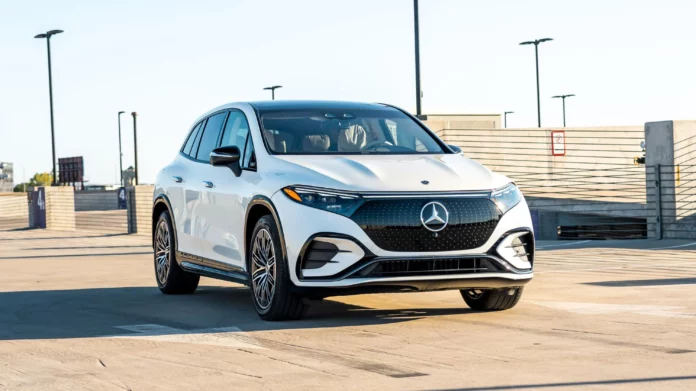Mercedes-Benz became the latest automaker to note a slower-than-anticipated desire for battery-powered automobiles on Thursday when it downplayed expectations on the demand for electric vehicles and said that it will upgrade its lineup of combustion engines long into the next decade.
The business’s original goal was to prepare for all-electric sales by 2030, but that goal was dependent on favorable market conditions. Instead, the company now expects sales of electrified cars, including hybrids, to account for up to 50% of the total by 2030.
A number of studies indicated that consumers were delaying purchases for a variety of reasons, such as a lack of charging infrastructure and the allure of electric vehicles. CEO Ola Kaellenius issued a warning at the end of the previous year, stating that even Europe would probably not be prepared for an all-electric lineup by 2030.
According to Kaellenius, Mercedes-Benz wanted investors and customers to know that the company was prepared to keep producing combustion engine vehicles and to advance technology long into the upcoming decade. “It is almost like we will have a new lineup in 2027 that will take us well into the 2030s,” according to Kaellenius’s upgrade plans. Following the announcement, shares of the high-end automaker saw a 5.9% increase in value. A share buyback scheme worth 3 billion euros ($3.3 billion) was also disclosed late on Wednesday.

Mercedes-Benz’s uncertain future
Although suppliers and manufacturers are placing large bets on the need for electric vehicles in the future, investment in capacity and technology development has outpaced the actual demand for EVs, increasing pressure on businesses to reduce prices. Mercedes-Benz said that its outlook for 2024 was clouded by slower economic growth, supply chain bottlenecks, and trade concerns between China and the US and EU. The automaker projected lower returns on sales across its car and van division.
It stated that first-quarter sales would probably be lower than those of the prior year. Mercedes-Benz stated that sales of electrified vehicles, including hybrids, were anticipated to stay between 19 and 21 percent of the total, in keeping with industry forecasts of a slower growth in EV demand.
The luxury automaker reported an adjusted return on sales in its car business of 12.6% for 2023, which was in line with its projection despite lower profitability due to shortages of some components, supply chain-related expenses, and inflation. It stated that, compared to last year’s 15.1%, it anticipated a lower adjusted return for 2024—10–12% for automobiles and 12–14% for vans.
The company increased investment in research and development for upcoming technologies like its MB.OS platform and hiked its average pricing by 2% to 74,200 euros. Despite a 2% increase in revenue, group earnings before interest and taxes decreased to 19.7 billion euros from 20.5 billion euros in the previous year.


